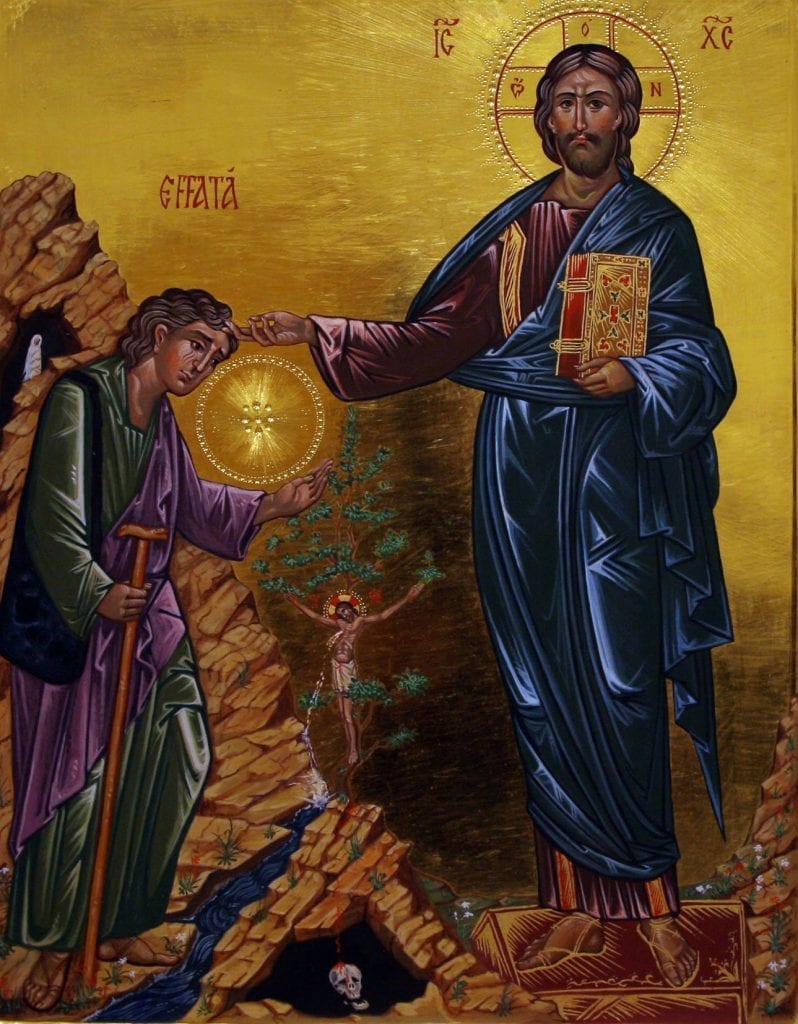HOMILY: Walking in mindfulness – September 22, 2019
Readings: Galatians 5:16-24, Matthew 6:24-33
If one studies the choice of language in the scriptures enough, preferably in the Greek, one begins to see a language of journey and transformation. It is a way of life that takes us from where we were, leading us in Christ likeness in this life, towards the completion of all things in the world to come. The Christian faith is a journey in which Christ is the path, Christ is the door, and simultaneously the prize and completion of the redemptive work of the cross. Ours is a journey of restoration and healing, to restore the dignity of our humanity to its Edenic and former glory.
We undertake this journey not as one alone, but we walk together as the body of Christ, being lead by Christ towards the end of all things: the eschaton. In this journey we must always ask ourselves if we are indeed following Christ, or if we are following something else as unfortunate yet willing slaves to sin. Do we follow the Holy Spirit of God, or are we enticed instead by the spirit of this age. It is a constant struggle being waged within us; though, no one can serve two masters, as Christ tells us in the Gospel of Saint Matthew. The word translated here as master is the word κύριος, or Lord. So, do we follow Jesus Christ as our Lord and God, becoming slaves to righteousness? Or, do we succumb to the temptations of the Evil One, seeking the passions and pleasures of this life over the rewards of the next? It is an ever present tension in which we live, choosing between the immediate gratifications of this world, or the delayed promises of the next. We should prefer to live our lives in constant expectation of the world to come, where those likewise who have gone before us look forward with equal expectation towards the resurrection. What expectations can be found in the things of this world but loss, suffering, and anguish born from our attachment to them, and our eventual loss of them; for, they are fleeting and all is vanity.
In this journey, Saint Paul tells us to “walk by the Spirit” so that we “will not gratify the desires of the flesh.” Elsewhere in the scriptures we are told likewise to live in the world, but not of it. We are instructed to live in the world as citizens of the Kingdom of God, adopted as sons and daughters of God the Father almighty. We are exhorted to live as aliens and sojourners in this world. We walk by the spirit, passing through this world without any attachment to the things of this world. We live in the world, but do not follow nor participate in the spirit of the age in which we live. We live in the world, but we do not acquiesce to the vagaries of this age, for the spirit of any age will always and invariably lead to death. The spirit of an age is impermanent and changes from generation to generation; but, the Spirit of God is eternal. The spirit of God is everlasting. The spirit of God is Truth, and life.
So, what does it mean by use of the word “spirit?” The word translated here is πνεῦμα, which by extension and context connotes the heart and mind of God. So, the spirit is in essence the mindset that has come down to us from God, through Jesus Christ our Lord; however, there is also another word with a similar meaning, and that is φρόνημα. This is the Orthodox mindset in which we live and understand our day to day lives, a mindset rooted in Christ and the sacramental life and rhythm of the Church. So, we follow the heart and mind of God, exhibiting the heart and mind of God in this world and in our day to day lives. We know that we are doing this by those fruits which Saint Paul has listed for us in his letter to the Galatians: love, joy, peace, patience, kindness, goodness, faithfulness, gentleness, and self-control. It is by these that we may know that we are following a right spirit within us.
The spirit of this age is known by the other list of bitter fruits also given in the same letter to the Galatians: sexual immorality, impurity, sensuality, idolatry, sorcery, enmity, strife, jealousy, fits of anger, rivalries, dissensions, divisions, envy, drunkenness, and all things such as these. Many of these are easily made manifest in the world around us, for indeed we live in a fallen world, and we should have no participation with it. It would be better for the world to consume us, than to give in to such as these. Such is the life of a martyr.
There are many spirits for us to follow, but we can only be mindful of one. We cannot be of two minds. We cannot possess two hearts. We cannot take two paths, nor can we follow two masters leading us in opposite directions. We must be of one mind and one accord, both within ourselves and with all who surround us. For we rise together, but we fall alone. We must decide whether to be hot or cold, for a life of indecisive faith is lukewarm, and will lead to us being spit out of the mouth of the Holy One who spoke all things into existence.
We cannot hover indefinitely between the convictions of this world or those of the next. We cannot sit on the fence for the rest of our days. We cannot hold on to both lives, for we can only live one of them. We can only conform to one way or the other. We cannot – at the risk of sounding flippant – have our cake and eat it too. There is one Truth, one path, one way, and one spirit. God is not a God of many minds, so neither should we be likewise.
We are mindful of God and follow Him not for a reward of earthly things, but we follow Him for a reward of promise. For, we are promised no luxuries or comforts in this life, for indeed Christ had none. We are to pass through this world without any attachment to it. We are to have faith and trust in He who gave us life that all things – that which we receive, or those things which we lack – will be necessary to the salvation of ourselves and others. As our Gospel reading has exhorted to us today, we are not to be anxious about the things of this world,” for indeed the world has enough anxieties of its own. We are not to possess the world, nor are we to be possessed of the world. We are to be concerned with the things of God; for those things that are holy; for those things that are just; and for those things that are rooted in righteousness. Anything outside of this is superfluous vanity.
We must be mindful, developing an appropriate φρόνημα about our Orthodox faith. We must be mindful of our words; mindful of our actions; and mindful of that which we do before the watchful eyes of the world. We must be mindful of our thoughts, for as Elder Thaddeus has said, our thoughts determine our lives. Not least of these, we should be mindful of what spirit we follow, for there is only one Truth, but there are many spirits. There is only One way, but there are many roads that lead away from the present moment. There are many mindsets, but there is only one mind of God. We shall be known by the fruits that we bear, for we walk in the spirit, that we may have the spirit of God within us.
I close from an excerpt taken from Edler Thaddeus’ own writings, from a chapter titled “Repentance is a Change of Life:’
“Life on earth is manifested in our thoughts. Whatever our thoughts are occupied with , that reflects the kind of life we lead. If our thoughts are quiet and peaceful, kind and loving, there’s peace for us; and if they are negative, there’s disquiet and restlessness. We are small and helpless beings, and we must unceasingly ask our Heavenly Father for help in all things; we must pray to Him to give us strength and to give us of His Grace, the Divine energy that is present and works everywhere, most especially in those souls that have chosen to serve the Lord with their whole life, both in this world and in eternity. For God is peace; God is comfort and joy to all people, I therefore wish you peace and joy in the Lord.”
By the prayers of our holy fathers and mothers, Lord Jesus Christ our God have mercy upon us and save us
Amen


